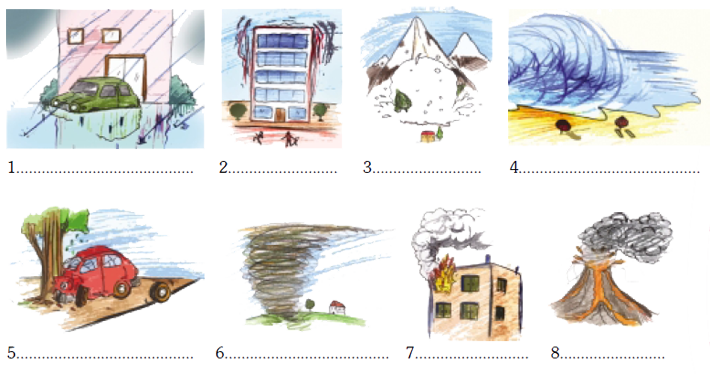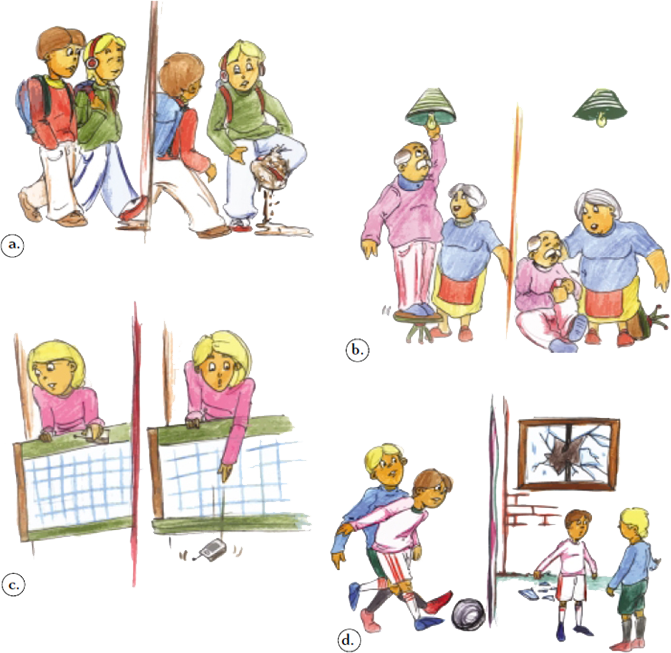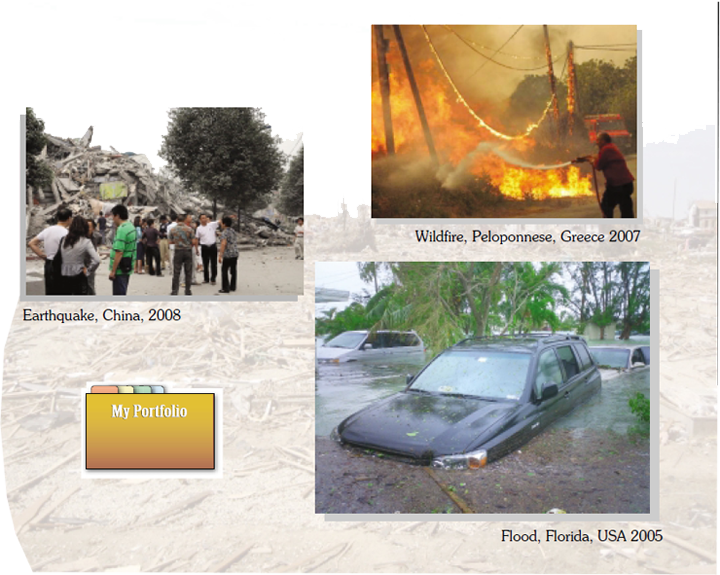Lesson 3

|

|
 |
1 |
Do you know what a tsunami is? Do this quiz to find out. |
2 |
Jean Paul wants to write an article about this event in the school newspaper. Read and complete his notes. |
What happened?
On December 26th 2004, at 7.58 am local time, there was a big
earthquake in the Indian Ocean, near Indonesia. The tsunami that
followed killed more than 150.000 people and left 5 million
homeless.
Pete and Cathy from England were spending their Christmas
holidays in Phuket with their dad. Pete is talking about that
horrible day.
“When the tsunami hit, we were sleeping. My sister and I woke up
because we heard police sirens and helicopters. We left dad asleep
and went down to find out what was going on. Outside, people
were standing in shock. Suddenly a man yelled, ‘Another wave ...
There's another one coming!' We ran as quickly as possible to our
room. While Dad was talking on the phone with mum, the phone
went dead. We left the hotel immediately. On our way to the
airport, we saw the beach... It was full of broken beach umbrellas
and boats. Tourists were looking for their families. It was awful! We
were alive because we hadn't gone to the beach earlier that
morning! Lots of other people weren't that lucky. We just wanted
to go home but the airport was shut! We'll never forget what we
saw over those days.”
adapted from Mizz No. 514 Jan 26th - Feb 8th 2005 p. 28 - 29











